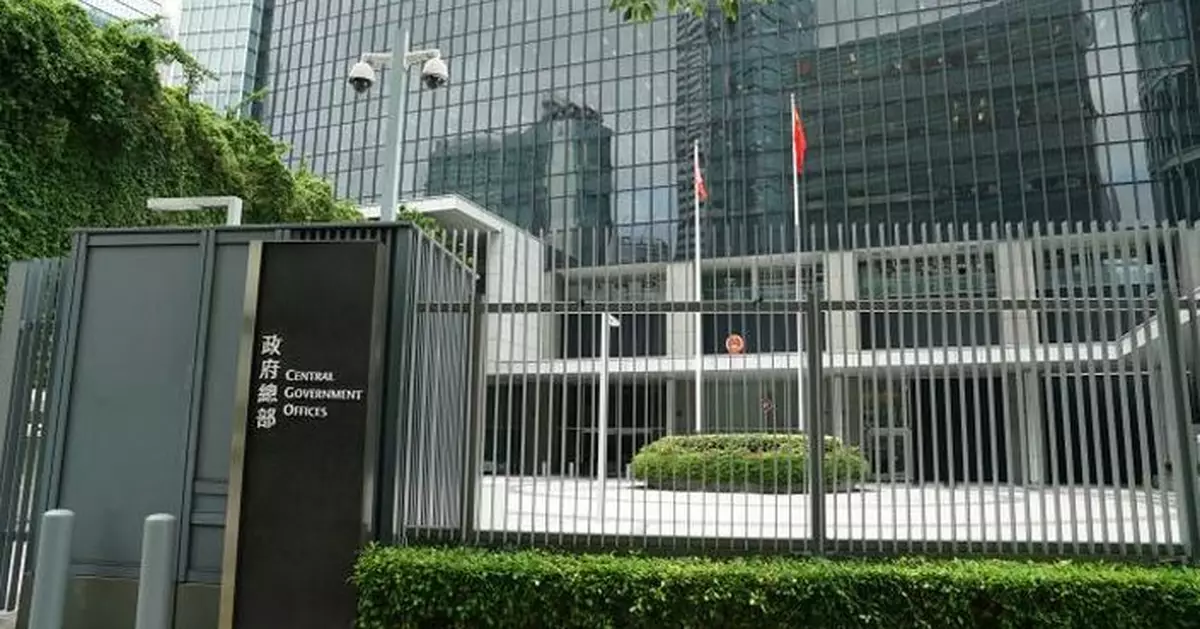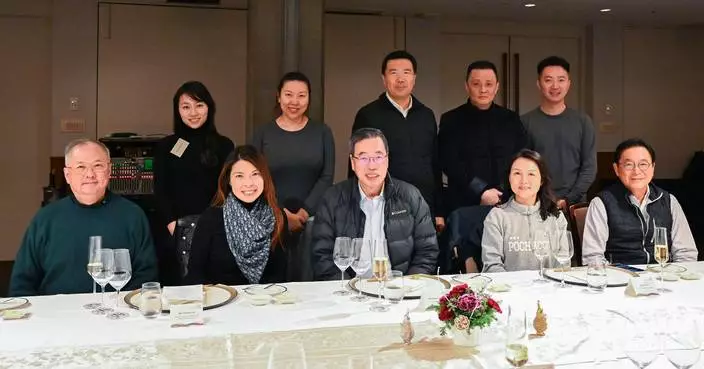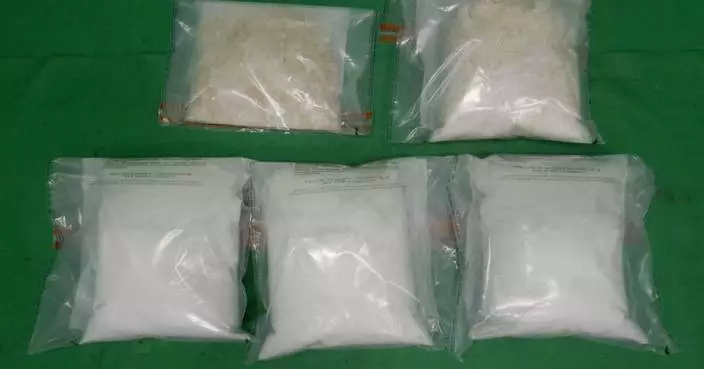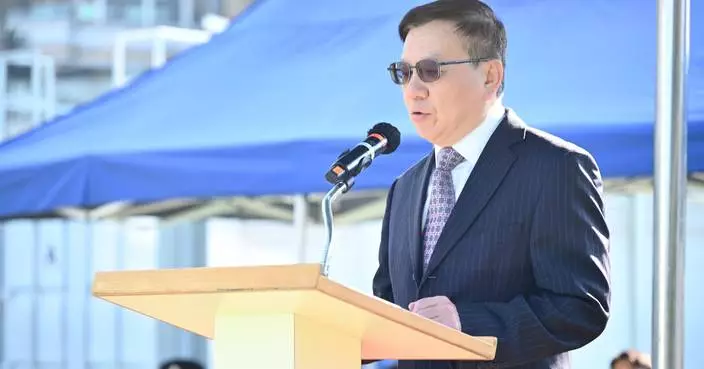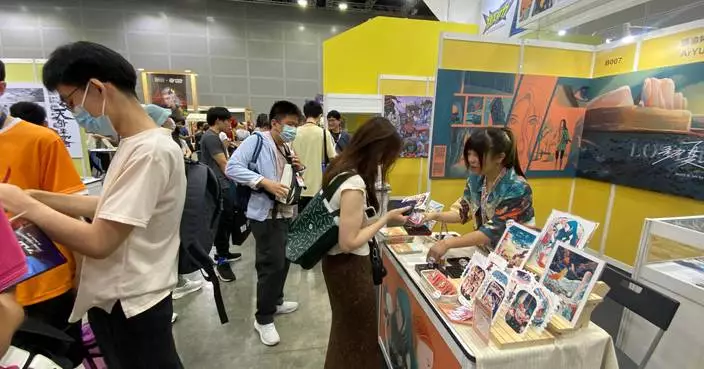HKSAR Government strongly disapproves and condemns skewed remarks on Hong Kong matters by US Consul General to Hong Kong
The Government of the Hong Kong Special Administrative Region (HKSAR) today (July 31) strongly disapproved of and condemned the absurd and unfounded remarks on Hong Kong's situation, in areas such as safeguarding national security and protecting human rights, made by the Consul General of the United States of America (US) to Hong Kong, Mr Gregory May, in a media interview.
A spokesman for the HKSAR Government said, "Since the implementation of the Hong Kong National Security Law (NSL) in June 2020, the US has ignored the large-scale and incessant riots that occurred in 2019 that devastated society, livelihoods and the economy of Hong Kong. Instead, it piled up false stories and fabricated narratives to maliciously slander laws relevant to safeguarding national security in the HKSAR, and blatantly attacked the HKSAR in safeguarding national security dutifully, faithfully and in accordance with the law. The US has also deliberately neglected the fact that the NSL has enabled the livelihood and economic activities of the Hong Kong community as well the business environment to return to normalcy, exposing its hypocrisy with double standards.
"The HKSAR is an inalienable part of the People's Republic of China. It is a local administrative region that enjoys a high degree of autonomy under 'one country, two systems' and comes directly under the Central People's Government. The legal basis for implementing 'one country, two systems' comprises the Constitution and the Basic Law, which provide a constitutional guarantee for fundamental rights and freedoms, including the right to equality before the law, and is buttressed by the rule of law and independent judicial power," the spokesman stressed.
"Since Hong Kong's return to the motherland, human rights in the city have always been robustly guaranteed constitutionally by both the Constitution and the Basic Law. The legal framework in safeguarding national security in the HKSAR is in line with relevant international human rights standards. The NSL and the Safeguarding National Security Ordinance (SNSO) clearly stipulate that human rights shall be respected and protected in safeguarding national security. The rights and freedoms enjoyed by Hong Kong residents under the Basic Law and the provisions of the International Covenant on Civil and Political Rights (ICCPR) and the International Covenant on Economic, Social and Cultural Rights as applied to the HKSAR are protected in accordance with the law. Nonetheless, just as the case with other places in the world, such rights and freedoms are not absolute. The ICCPR also expressly states that some of them may be subject to restrictions as prescribed by law that are necessary for protection of national security, public safety, public order or the rights and freedoms of others, etc.
"As a matter of fact, it is each and every sovereign state's inherent right to enact laws safeguarding national security, and it is also an international practice. The US has at least 21 pieces of laws safeguarding national security. It is therefore in no position to point its finger at the HKSAR's legal system and enforcement mechanisms to safeguard national security."
The spokesman stressed, "The offences endangering national security stipulated by the NSL and the SNSO target acts endangering national security with precision, and define the elements and penalties of the offences with clarity. The HKSAR law enforcement agencies have been taking law enforcement actions based on evidence and strictly in accordance with the law in respect of the acts of the persons concerned. Law-abiding persons will not unwittingly violate the law. The remarks made by the Consul General of the US to Hong Kong on the so-called 'chilling effect' are purely malicious smears on the NSL and the SNSO."
The spokesperson reiterated, "The HKSAR Government is steadfast in safeguarding national sovereignty, security and development interests, fully and faithfully upholding this top priority of the 'one country, two systems' principle. The HKSAR Government will, as always, resolutely, fully and faithfully implement the NSL, the SNSO and other relevant laws safeguarding national security in the HKSAR, to effectively prevent, suppress and impose punishment for acts and activities endangering national security in accordance with the law. At the same time, it protects the legal interests, rights and freedoms enjoyed by Hong Kong residents and other people in Hong Kong in accordance with the law, ensuring the steadfast and successful implementation of 'one country, two systems'. The HKSAR Government strongly demands the Consul General of the US to immediately stop the malicious smears of and interference in Hong Kong matters which are purely China's internal affairs."
CHP reminds public on precautions against cold weather
The Centre for Health Protection (CHP) of the Department of Health (DH) today (December 22) reminded the public, particularly the elderly and people with chronic illnesses, to adopt appropriate measures to protect their health in view of the cold weather.
A spokesman for the CHP said that cold weather can easily trigger or exacerbate diseases, especially among the elderly and persons suffering from heart disease, respiratory illnesses or other chronic illnesses.
"Elderly people have less insulating fat beneath their skin to keep them warm, and their body temperature control mechanisms may be weaker. Their body may not be able to appropriately respond to thecold weather," the spokesman said.
Some senior persons may have decreased mobility, which can impair their ability to generate and conserve body heat. Chronic illnesses, such as hypertension, diabetes and endocrine disorders, may undermine the health of elderly people and lower their metabolic rate, subsequently causing their body to generate less heat. Persons with chronic illnesses, such as chronic respiratory illnesses or heart disease, are vulnerable to disease aggravation due to cold weather.
The CHP reminded the public, in particular the elderly and persons with chronic illnesses, to adopt the following preventive measures:
Take note of the weather forecast. Wear warm clothing, including hats, scarves, gloves and socks, accordingly;
Consume sufficient food to ensure adequate calorie intake;
Perform regular exercise to facilitate blood circulation and heat production;
Stay in a warm environment and avoid prolonged outdoor exposure;
Use heaters with care and maintain adequate indoor ventilation; and
Seek medical advice if feeling unwell.
In addition, the public should avoid alcoholic beverages.
"Drinking alcohol cannot keep you warm. Alcohol accelerates the loss of body heat through dilated blood vessels, resulting in chilling instead," the spokesman said.
"Parents should ensure that babies are sufficiently warm, but it is also important to keep babies relatively lightly clothed to avoid overheating them," the spokesman added.
Parents should observe the following safety measures when putting their children to bed:
Keep the room well ventilated and at a comfortable temperature;
Always place babies on their backs to sleep. Leave their heads, faces and arms uncovered during sleep;
Babies do not need pillows. Place babies on a firm and well-fitted mattress to sleep. Avoid soft objects, pillows and loose bedding;
Let babies sleep in a cot placed near their parents' bed; and
Maintain a smoke-free environment.
In addition, many respiratory pathogens, including influenza and SARS-CoV-2, may have increasing activity and community transmission during winter. Seasonal influenza vaccination is recommended for all persons aged 6 months or above, except those with known contraindications. Persons at higher risk of getting influenza and its complications, including the elderly and children, should receive seasonal influenza vaccinations early. Please see details of the vaccination schemes on theCHP's website.
A person who gets influenza and COVID-19 at the same time may be more seriously ill and would have a higher risk of death. It is important for elderly persons, especially those residing in residential care homes, to receive both a seasonal influenza vaccination and a COVID-19 vaccination. They should also receive an additional booster against COVID-19 according to recommendations as soon as possible. The public should also maintain good personal and environmental hygiene against respiratory illnesses and note the following:
Surgical masks can prevent transmission of respiratory viruses from ill persons. It is essential for persons who are symptomatic (even if having mild symptoms) to wear a surgical mask;
Wear a surgical mask when taking public transport or staying in crowded places. It is important to wear a mask properly, including performing hand hygiene before wearing and after removing a mask;
Avoid touching one's eyes, mouth and nose;
Wash hands with liquid soap and water properly whenever possibly contaminated;
When hands are not visibly soiled, clean them with 70 to 80 per cent alcohol-based handrub;
Cover the mouth and nose with tissue paper when sneezing or coughing. Dispose of soiled tissue paper properly into a lidded rubbish bin and wash hands thoroughly afterwards;
Maintain good indoor ventilation;
When having respiratory symptoms, wear a surgical mask, refrain from work or attending classes at school, avoid going to crowded places and seek medical advice promptly; and
Maintain a balanced diet, exercise regularly, take adequate rest, do not smoke and avoid overstress.
Food-borne diseases, particularly those linked to hotpot cuisine, are also common in cold weather. The following preventive measures should be taken:
Wash hands before handling and consuming food;
Do not patronise unlicensed vendors or those with poor hygienic standards while selecting food;
Wash and cook all food thoroughly;
Vegetables should be washed thoroughly in clean running water before cooking and consumption. When appropriate, scrub vegetables with hard surfaces with a clean brush to remove dirt and substances, including pesticide residues and contaminants, from surfaces and crevices;
Shrimps should be fully cooked until the shells turn red and the flesh turns white and opaque;
For shellfish such as scallops and geoduck, scrub the shells thoroughly and remove internal organs;
Do not eat any undercooked freshwater aquatic products. To ensure that the food is thoroughly cooked, the centre of the food should reach a temperature of at least 75 degrees Celsius so as to destroy pathogen;
Most hotpot ingredients should be stored in a refrigerator at 4 degrees C or below, while frozen food should be stored in a freezer at -18 degrees C or below;
Never use raw eggs as a dipping sauce for hotpot; and
Use different sets of chopsticks to handle raw and cooked food to avoid cross-contamination.
In addition, when using fuel-burning appliances, especially in indoor areas, the public should ensure adequate ventilation to avoid harmful exposure to carbon monoxide (CO) and prevent CO poisoning.
For more health information, the public may call the DH's Health Education Infoline (2833 0111) or visit theCHP's websiteandFacebook Fanpage.
The public may also call Dial-a-Weather (1878 200) or visit thewebsite of the Hong Kong Observatoryfor the latest weather information and forecasts, or itspage on Weather Information for Senior Citizens.


